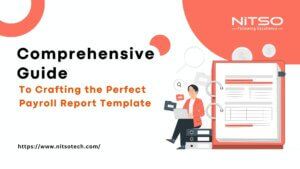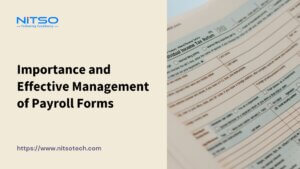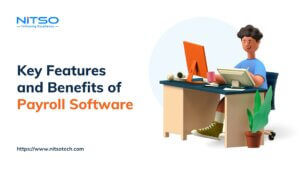Content On This Page
Managing payroll is a complex yet critical function for any organization. Payroll administrators play a vital back-end role in ensuring employees are paid accurately and on time every pay period. They handle everything from calculating compensation to filing taxes for the workforce. If you enjoy working with numbers, staying up-to-date on regulations, and providing an important service for employees, a career as a payroll administrator may be rewarding.
But what exactly does a payroll administrator do day-to-day? What skills and qualifications are needed to be successful in this role? This comprehensive guide will provide Indian professionals and students insights into the payroll administrator role. We will cover key responsibilities, required competencies, education, reporting structures and steps to building a career in payroll management.
What is a Payroll Administrator?
A payroll administrator is a finance and accounting professional responsible for managing all payroll activities in an organization. Payroll administration is a specialized function requiring knowledge of compensation laws, tax regulations and accounting principles.
The payroll administrator role combines accounting, finance, HR operations, regulatory knowledge and analytics. They work closely with Finance, HR and Administration teams. Most payroll administrators have a degree in accounting or finance with payroll certifications.
Overview of a Payroll Administrator’s Responsibilities
A payroll administrator is responsible for managing all aspects of employee compensation. Their core duties include:
1. Calculating Pay and Benefits
The foundation of a payroll administrator’s responsibilities lies in accurately calculating employee compensation each pay period. This includes determining gross and net pay, taxes, statutory contributions, reimbursements, incentives and other earnings as per company policies and statutory guidelines. We will explore the key tasks involved in computing pay and benefits for employees.
- Computing gross and net pay for all employees. This requires accurately calculating salaries, hourly wages, overtime, commissions, bonuses and other earnings.
- Determining appropriate tax withholdings at the federal, state and local levels based on factors like filing status, pay frequency, pre-tax deductions and number of allowances claimed. Keeping updated on the latest income tax slabs and rules is critical.
- Calculating employee benefits such as provident fund contributions, insurance premiums, leave encashment, gratuity and other perks. This is done as per company policies and statutory regulations.
- Ensuring pay and benefits comply with Indian labour laws like the Payment of Wages Act, Minimum Wages Act, Equal Remuneration Act etc. as well as contractual obligations.
- Processing one-time payments like reimbursements, lateral transfer benefits, arrears etc. as per eligibility.
- Preparing detailed pay slips itemizing all earnings, deductions and taxes for each pay period.
2. Maintaining Payroll Records
Proper documentation and maintenance of payroll records are critical for seamless processing, audits and statutory compliance. Payroll administrators have to keep track of a wide range of employee data, policy documents, and reports. We will discuss essential procedures for recording, storing and managing sensitive payroll information.
- Keeping accurate records of payroll data including salaries, wages, taxes, deductions, leaves, benefits, bonuses etc.
- Documenting all payroll policies, procedures and changes for internal reference.
- Maintaining up-to-date employee files with personal tax information, bank details, leave accruals etc. Needed for payroll processing.
- Ensuring payroll records adhere to data privacy standards and cybersecurity protocols. Restrict access to sensitive employee information.
- Preparing payroll audit reports and liaising with internal/external auditors to ensure procedures are robust.
3. Reporting Payroll Data
Payroll reporting is essential for business analytics, financial statements and statutory filings. Payroll administrators have to compile and submit a variety of returns for management, finance teams and tax authorities. We will look at critical payroll reports that payroll administrators need to produce.
- Submitting payroll reports to management on reconciled payrolls, labor costs, taxes paid etc. for analysis and decision making.
- Providing inputs for financial statements by tallying payroll expenses. Liaising with the Finance team.
- Generating periodic and annual returns for payroll taxes, EPF, ESI, PT and filing on time to avoid penalties.
4. Processing Payroll
One of the most important responsibilities is ensuring timely and accurate payroll processing. We will walk through the steps involved in payroll runs – from verifying time data to confirming salary disbursements. Proper checks before processing are vital to avoid costly errors.
- Reviewing time and attendance data, employee work logs, overtime approvals, leave records etc. to verify hours worked, leaves availed and overtime eligibility each pay period.
- Ensuring any changes in status like promotions, increments, lateral transfers etc. are accounted for in payroll processing as per approvals.
- Making any manual adjustments needed such as salary arrears, reimbursements, and one-time payments before finalizing the payroll.
- Running test payrolls and auditing each step to ensure accuracy before final payroll processing.
- Issuing salary credit advice to banks and confirming payments on payday.
- Generating paychecks or pay slips for employees who receive physical payments.
- Ensuring employees receive clear communication about pay details, statutory contributions, policy changes etc.
5. Compliance
Staying compliant with the latest labour laws, tax codes and regulations is imperative for smooth payroll operations. We will discuss how payroll administrators ensure processes adhere to statutory norms through audits, implementation of new requirements and filings.
- Staying up-to-date on Indian payroll compliance laws, tax rates, threshold changes, deadlines etc.
- Implementing any new payroll regulations or requirements on time to avoid penalties. For example, updating the Employee PF wage ceiling.
- Conducting periodic audits to ensure payroll processes and documentation adhere to statutory norms. Identifying process gaps for corrective action.
- Complying with data protection laws regarding collection, storage and sharing of employee information.
- Preparing for payroll audits by external statutory authorities and liaising with them to provide required employee data, reports, clarifications etc.
Skills Needed to be a Payroll Administrator
To succeed as a payroll administrator, certain skills and qualifications are required:
1. Math and Accounting Skills
- Strong math skills including percentages, ratios, and basic algebra to accurately calculate pay, taxes, deductions, leaves etc.
- Solid understanding of accounting principles to reconcile payrolls, identify discrepancies, provide data for financial statements etc.
- Analytical skills to audit payrolls, troubleshoot errors, and project costs and alert management about potential issues or risks.
2. Attention to Detail
- High attention to detail is critical to avoid costly payroll errors related to pay rates, deductions, taxes etc.
- Must be able to spot and fix discrepancies in payrolls through careful verification and auditing.
3. Knowledge of Payroll Regulations
- In-depth knowledge of Indian payroll compliance laws related to minimum wages, EPF, PT, bonuses, gratuity etc.
- Understanding tax laws and ability to implement changes in tax slabs, filings, thresholds etc.
- Staying updated on the latest rulings, notifications, and circulars relevant to payroll released by the Ministry of Labour, EPFO, ESIC etc.
4. HR Experience
- Understanding of HR domains like recruitment, leaves, promotions, and exits to incorporate any status changes in payroll processing.
- Experience in HR operations brings insight into company policies, employee contracts, labour laws etc. that impact payroll.
5. Communication and Interpersonal Skills
- Strong communication skills to collaborate with HR and finance teams and interact with employees.
- Ability to handle employee payroll inquiries and resolve issues tactfully.
Conclusion
Being a payroll administrator is a specialized career path that combines an understanding of accounting, finance, HR operations, and regulatory compliance. With experience, payroll administrators can rise up the ranks to leadership roles heading the function across large organizations. They can also move into related areas like compensation and benefits, taxes and audits.
For those interested in a behind-the-scenes support role that ensures employees get paid accurately and on time, payroll administration offers a stable and rewarding career. The
constantly evolving compliance landscape also makes it an exciting domain for number lovers who enjoy solving complex calculations, audits and processes. With robust demand across sectors, there are diverse opportunities for payroll management professionals to grow in India.








0 Comments